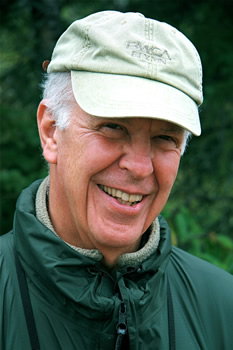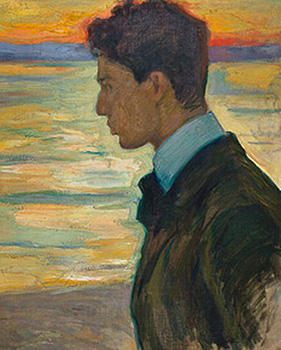From Our Archives
Debie Thomas, The Unknowable (2021); Debie Thomas, What Glory Looks Like (2018); and Beth Kawasaki, In the Name of What?! (2015).
This Week's Essay
For Sunday October 20, 2024
Lectionary Readings (Revised Common Lectionary, Year B)
Psalm 104:1–9, 24, 35c or Psalm 91:9–16
Hebrews 5:1–10
Mark 10:35–45
In his book Let Your Life Speak, Parker Palmer tells how he was offered the presidency of a small educational institution. He wanted the job, and thought he should take it. Nevertheless, given his Quaker tradition, he assembled a "clearness committee" of some trusted friends. Their job wasn't to give him any advice, but instead to ask him honest, open-ended questions, so that Palmer could discern his vocational call for himself.
Halfway through this three-hour meeting, a friend asked Palmer what he would like most about being president. He mentioned several things he would not enjoy, like wearing a tie, at which his friend pointed out that he wasn't answering the question. Palmer paused, thought a bit, then he writes how he "gave an answer that appalled even me as I spoke it: 'Well,' I said, in the smallest voice I possess, 'I guess what I'd like most is getting my picture in the paper with the word 'president' under it.'"
He concludes: "I was sitting with seasoned Quakers who knew that though my answer was laughable, my mortal soul was clearly at stake! They did not laugh at all but went into a long and serious silence — a silence in which I could only sweat and inwardly groan. Finally, my questioner broke the silence with a question that cracked all of us up — and cracked me open: 'Parker, can you think of an easier way to get your picture in the paper?' By then it was obvious, even to me, that my desire to be president had much more to do with my ego than with the ecology of my life." The clearness committee had made things clear, and he withdrew his name from the search.
Parker Palmer isn't a bad person; he's just more honest than most of us, and maybe more in touch with his true self. His story reminded me of the Conferences by John Cassian, which surveyed monastic life back in the fifth century. One of the things that Cassian observed among the monks was clerical ambition cloaked as pious pretense.
Indeed, the grab for glory goes all the way back to this week's gospel of Mark. I've always found it fascinating that the gospels contain such an incriminating and embarrassing story about Jesus's closest followers.
 |
|
Parker J. Palmer.
|
In Mark's gospel, Jesus forewarns his disciples three different times about his destiny at the hands of the political powers and angry mobs in Jerusalem — betrayal, mockery, condemnation, suffering, violent execution, but then resurrection. Despite knowing what awaited him in Jerusalem, Jesus was resolute: "They were on the road, going up to Jerusalem, and Jesus was walking ahead of them; they were amazed, and those who followed were afraid." (Mark 9:32; cf Luke 9:51).
Right after each one of these three predictions, the disciples responded to Jesus in all the wrong ways. After walking with him for three years, they still badly misunderstood the true nature of his redemptive mission.
After his first "passion prediction," Jesus rebuked Peter for trying to prevent his sufferings: "You do not have in mind the things of God but the things of man." (Mark 8:33). After his second prediction, the disciples argued about who was the greatest (Mark 9:34).
Then, after the third prediction in the gospel for this week, in a power grab of remarkable audacity, presumption and exaggerated self-importance, James and John asked Jesus, "Do for us whatever we ask. Let one of us sit at your right and the other at your left in your glory." (10:37). The other ten disciples implicated themselves by indignantly protesting, fearing that James and John might gain some advantage over them. Today we would call it a bad case of F.O.M.O. Matthew's account of this story includes a cringeworthy detail, that it was the mother of James and John who made this brazen request (Matthew 20:20–28).
They objected to Jesus's self-sacrifice in Jerusalem. They argued about who was the greatest. They failed to heal a little boy, then tried to stop an anonymous healer "who wasn't part of us. Tell him to stop!" When they passed through a Samaritan village and the people didn't welcome them, they wanted to call down hell fire on them. And now they ask for seats of glory in the afterlife. Wow.
Jesus responded by resorting to irony. Their request for greatness and glory, he said, mimicked the powerful Roman overlords who oppressed the Jews with taxes, who exploited them, and who would execute Jesus in a few days. "You know that those who are regarded as rulers of the Gentiles lord it over them, and their high officials exercise authority over them. Not so with you." Rome's political power-brokers whom the disciples imitated were the same people that they despised and resented.
Jesus reversed and subverted this common pattern of human behavior. Genuine human greatness isn't characterized by domination, political power, schemes to control and subjugate people for your own advantage, or the egotistical grasp for glory, Jesus said, but by self-sacrificial service to others. In theory we believe this, though our practices often belie us.
 |
|
Boris Pasternak in 1910, by his father Leonid Pasternak.
|
His own life, teaching, death, and resurrection were an extended demonstration of the true nature of human greatness. "Whoever wants to become great among you must be your servant, and whoever wants to be first must be slave of all. For even the Son of Man did not come to be served, but to serve, and to give his life as a ransom for many." (10:45).
The Russian poet and novelist Boris Pasternak (1890–1960) was born into a wealthy Jewish family but baptized into the Russian Orthodox faith by his nanny. At first he supported the Russian revolution, but later he lost his faith in atheist totalitarianism. Pasternak came to symbolize the radical dissident's defense of human conscience. His poem "To Be Famous" encourages a certain sort of greatness, that done in quiet anonymity. That's where true history happens, not among the elite or the famous.
Creation calls for self-surrender,
Not loud noise and cheap success.
Life must be lived without false face,
Lived so that in the final count
We draw unto ourselves love from space.So plunge yourself into obscurity
And conceal there your tracks.
But be alive, alive your full share,
Alive until the end.
Many wise people have observed how it's the insecure, fragile ego that seeks to control, dominate, exploit, and manipulate others for its own advantage. Human experience tells us that such efforts are doomed to fail, because when they "succeed" they destroy others in the process. In the upside down world of Jesus, only the strongest sense of self, a self that neither grovels nor grasps, can resist chasing counterfeit notions of greatness. In imitating Jesus, as far as that is humanly possible, we serve others for their good rather than for our glory.
Weekly Prayer
A List of Praises
by Anne PorterGive praise with psalms that tell the trees to sing,
Give praise with Gospel choirs in storefront churches,
Mad with the joy of the Sabbath,
Give praise with the babble of infants, who wake with the sun,
Give praise with children chanting their skip-rope rhymes,
A poetry not in books, a vagrant mischievous poetry
living wild on the Streets through generations of children.Give praise with the sound of the milk-train far away
With its mutter of wheels and long-drawn-out sweet whistle
As it speeds through the fields of sleep at three in the morning,
Give praise with the immense and peaceful sigh
Of the wind in the pinewoods,
At night give praise with starry silences.Give praise with the skirling of seagulls
And the rattle and flap of sails
And gongs of buoys rocked by the sea-swell
Out in the shipping-lanes beyond the harbor.
Give praise with the humpback whales,
Huge in the ocean they sing to one another.Give praise with the rasp and sizzle of crickets, katydids and cicadas,
Give praise with hum of bees,
Give praise with the little peepers who live near water.
When they fill the marsh with a shimmer of bell-like cries
We know that the winter is over.Give praise with mockingbirds, day’s nightingales.
Hour by hour they sing in the crepe myrtle
And glossy tulip trees
On quiet side streets in southern towns.Give praise with the rippling speech
Of the eider-duck and her ducklings
As they paddle their way downstream
In the red-gold morning
On Restiguche, their cold river,
Salmon river,
Wilderness river.Give praise with the whitethroat sparrow.
Far, far from the cities,
Far even from the towns,
With piercing innocence
He sings in the spruce-tree tops,
Always four notes
And four notes only.Give praise with water,
With storms of rain and thunder
And the small rains that sparkle as they dry,
And the faint floating ocean roar
That fills the seaside villages,
And the clear brooks that travel down the mountainsAnd with this poem, a leaf on the vast flood,
And with the angels in that other country.Anne Porter's (1911-2011) first collection of poetry, An Altogether Different Language (1994), published when she was 83, was named a finalist for the National Book Award.
Dan Clendenin: dan@journeywithjesus.net
Image credits: (1) Wikipedia.org and (2) Wikipedia.org.





